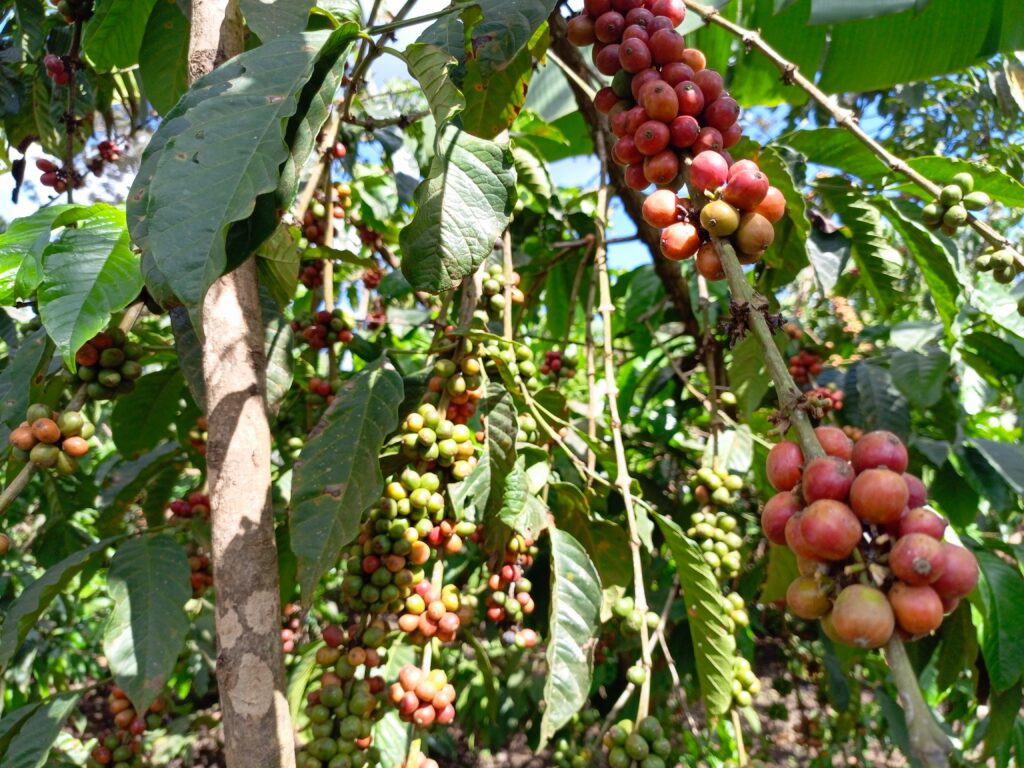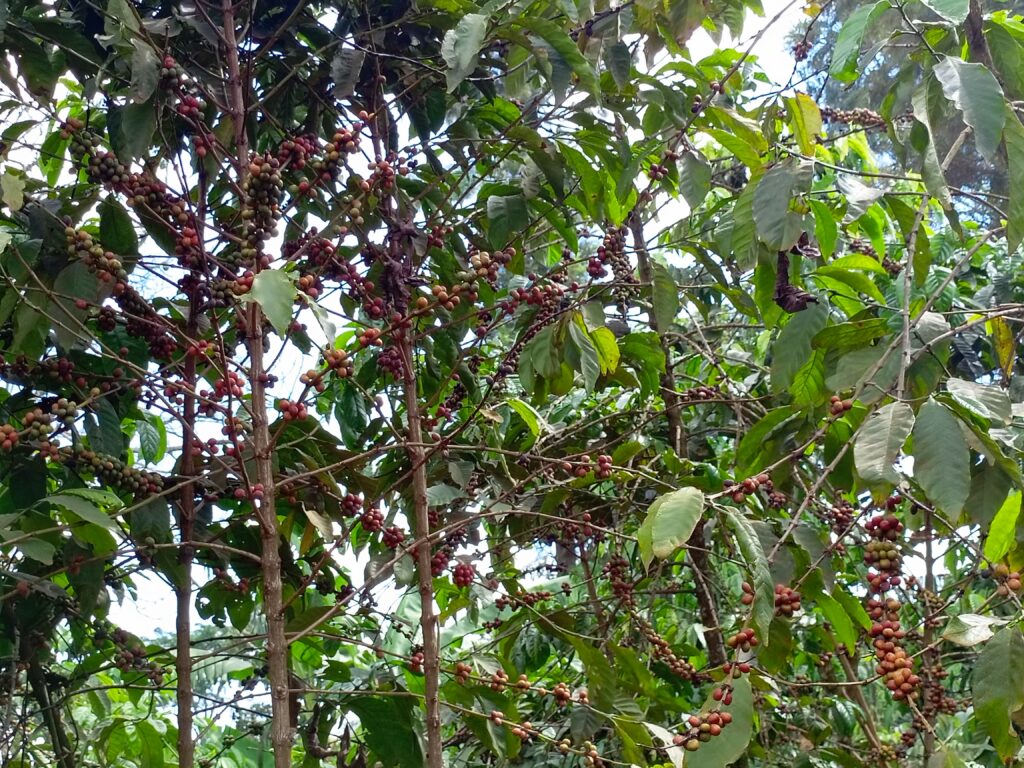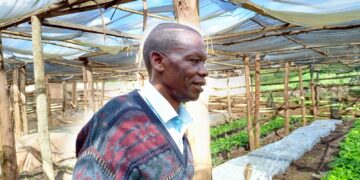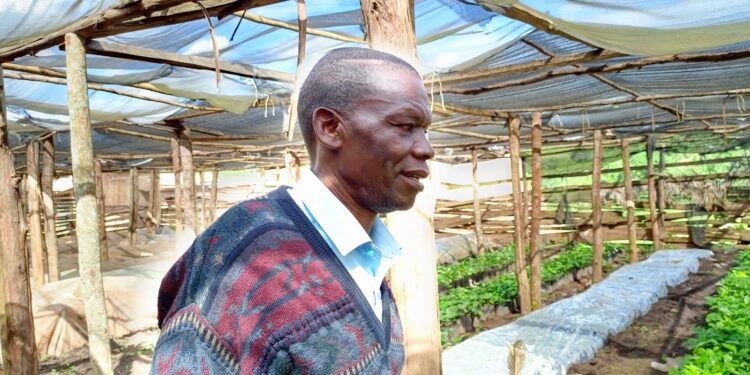Mubende — In the quiet hills of Madudu Sub-county, Mubende District, where coffee fields stretch into the horizon and poultry coops now fill once-abandoned rental units, James Nyombi is a living symbol of rural resilience and innovation.
Nyombi, the Local Council (LC) II Chairman of Naluwondwa Parish, is not only the parish’s highest-ranking local leader but also its most industrious coffee seedling farmer and a pioneering poultry entrepreneur with a flair for innovation. The 63-year-old has done it all.
Humble Origins
Born in 1962 in Kijunga Village, Nyombi left school after Primary Five (P.5) at Madudu Primary School. His parents could not afford school fees.
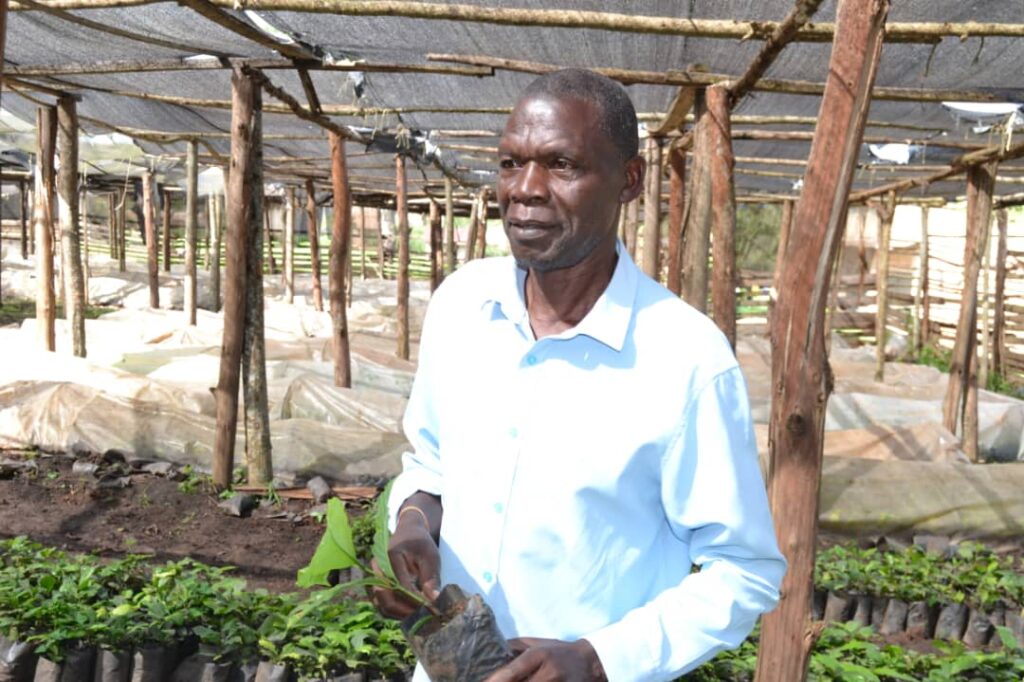
In the 1980s, during the Uganda Bush War, Nyombi started small, selling tomatoes and chicken in Mubende town. As the war intensified between 1984 to President Museveni’s takeover in 1986, Nyombi’s home village, Kijunga, became the site of a military barracks.
“There was a need for meat to feed the soldiers. That was when shops also started opening up in this village. I started running a shop,” he recollects. “I had started giving birth to children who needed school fees. Luckily, my shop, which sold general merchandise, had a lot of customers.”
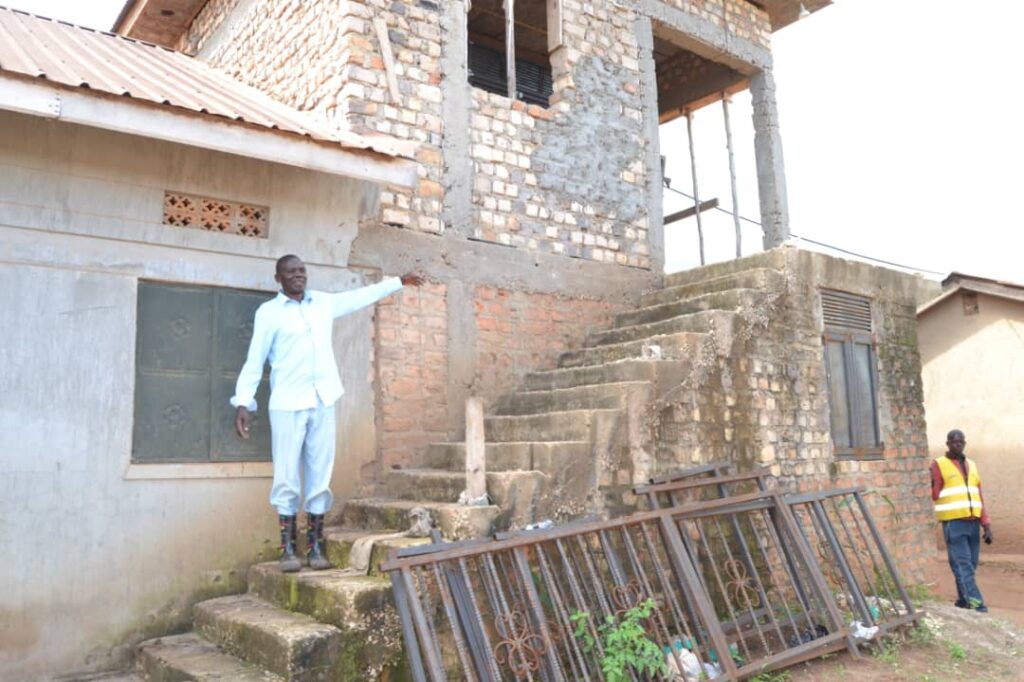
Unfortunately, Nyombi’s siblings had passed away and left behind orphans who needed to be looked after. “I became a butcher to look after those orphans. The shop could not sustain my big family anymore.”
As usual, he started small with Shs260,000. “I would buy a small cow, slaughter it and sell the meat to the soldiers. That is how life went on up to the 1990s when I became a prominent businessman.”
From Businessman to Agripreneur
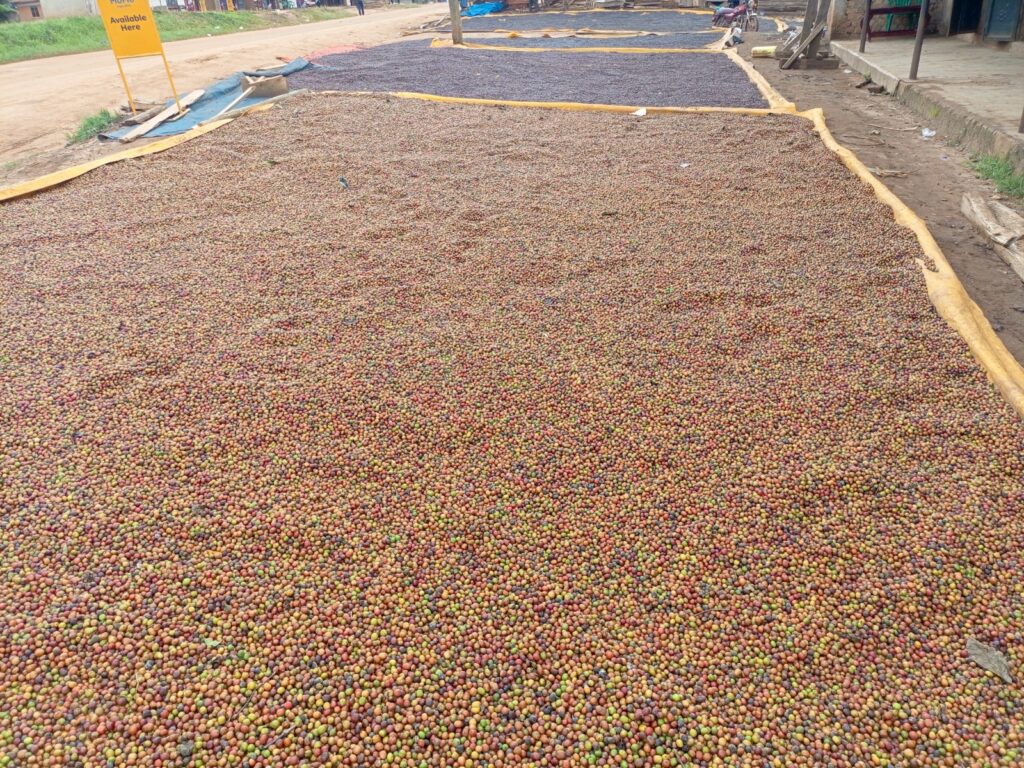
However, in 1992, Nyombi was robbed and all his money was taken. “I went back to zero. I decided to start farming, and by the 2000s, I became a coffee farmer.”
His family had also grown bigger and needed more income. The coffee market was also limited, and he wasn’t making a lot of money. “That is why around 2005, I decided to start coffee nurseries to sell coffee seedlings to other farmers.”
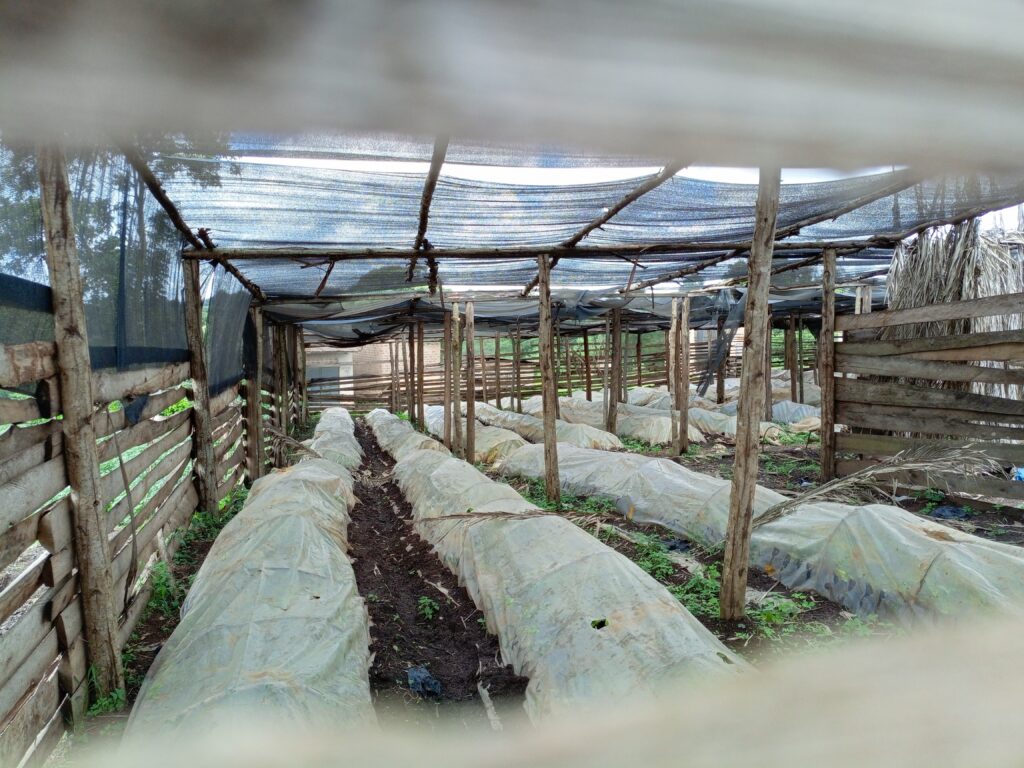
He went to the neighbouring German investor-owned Kaweri Coffee Plantation and bought seeds. With the training acquired from experts and agricultural officials from Madudu sub-county, he started his nursery beds. “It wasn’t easy at the start. By 2018, the nursery became successful, and by 2020, I had a lot of customers.”
Ever since, Nyombi has been earning a living from coffee. “I have gained a lot from coffee growing. I have children who have acquired degrees and others who have joined formal employment. They help me look after their siblings.”
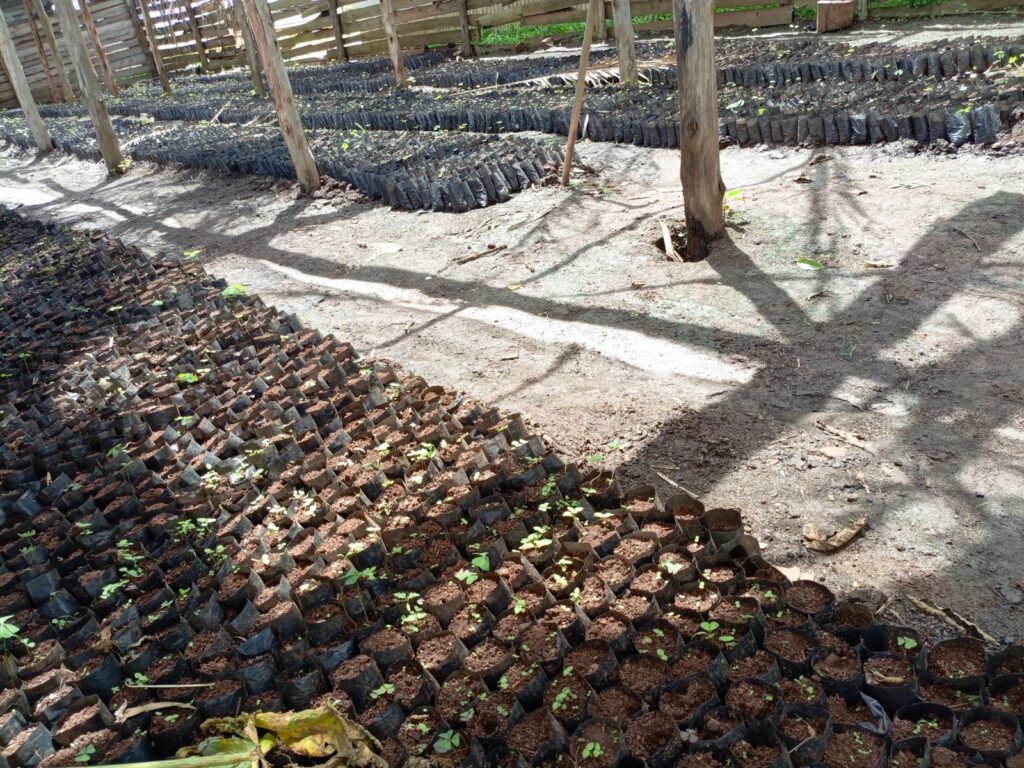
On a personal level, Nyombi has bought two cars from coffee growing. “One is for my personal use, while the other (a pickup) helps people in my community whenever there is a need. I have built two homes, rentals for tenants and a commercial two-storeyed building that will serve as my office.”
As the community leader, he also built a water system that cost over Shs150m. It supplies water to his coffee nurseries and for domestic use to his neighbours, at a fee, which is used for maintenance.
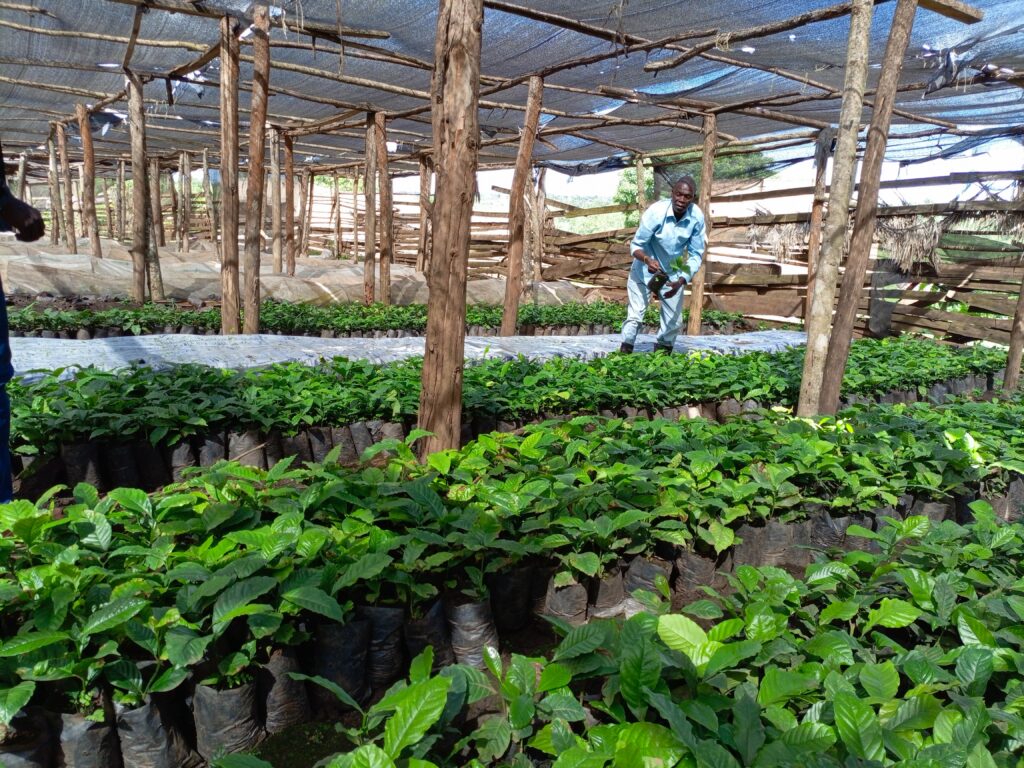
Coffee Seedlings: A Business Rooted in Patience
For Nyombi, coffee is more than a crop — it’s a craft. Today, Nyombi’s coffee nursery is the largest in Naluwondwa Parish. Rows of coffee seedlings grow in plastic pots, nurtured with care on a quarter of an acre of land.
“You begin with selecting the right seeds—big, ripe, well-dried,” he explains, standing beside rows of vibrant coffee seedlings. “You remove the shells and plant them. In six to seven months, you get seedlings strong enough for pots.”
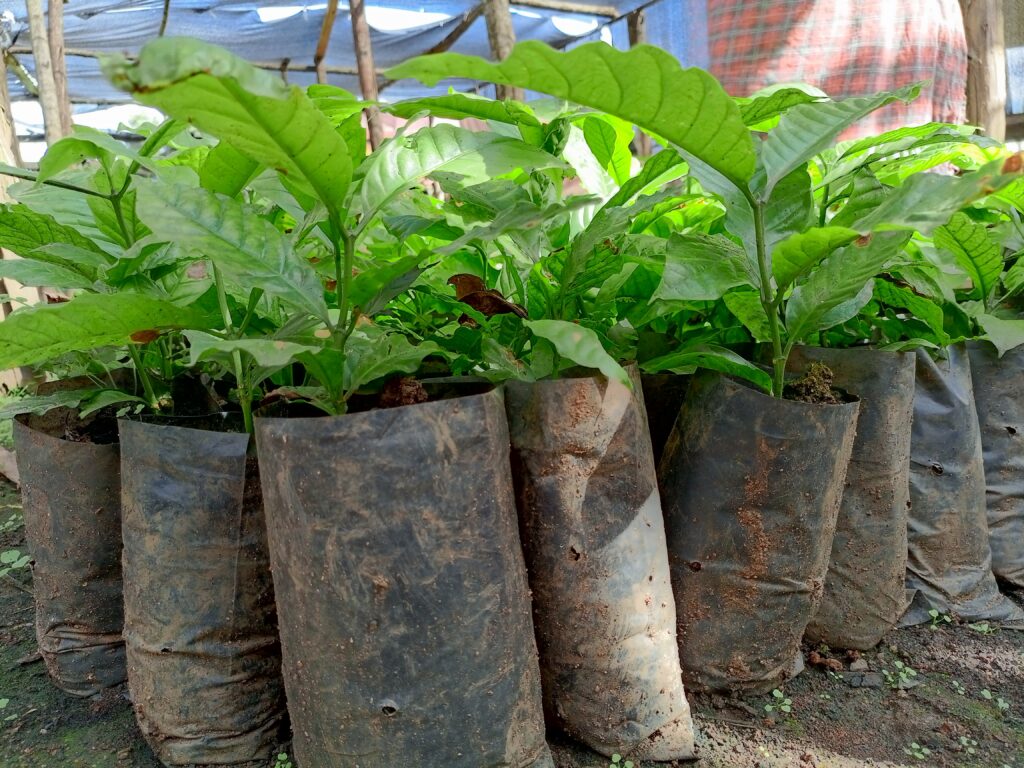
From there, the business takes root. He nurtures the seedlings with fertilisers, waters them regularly, and waits until they’re ready for the market, typically between 10 and 12 months of age.
“A pot seedling goes for about Shs1,000,” Nyombi says. “If it’s a bigger one, planted in a garden, it can fetch between Shs1,500 and Shs2,000. In a season, I can earn Shs20m to Shs30m.”
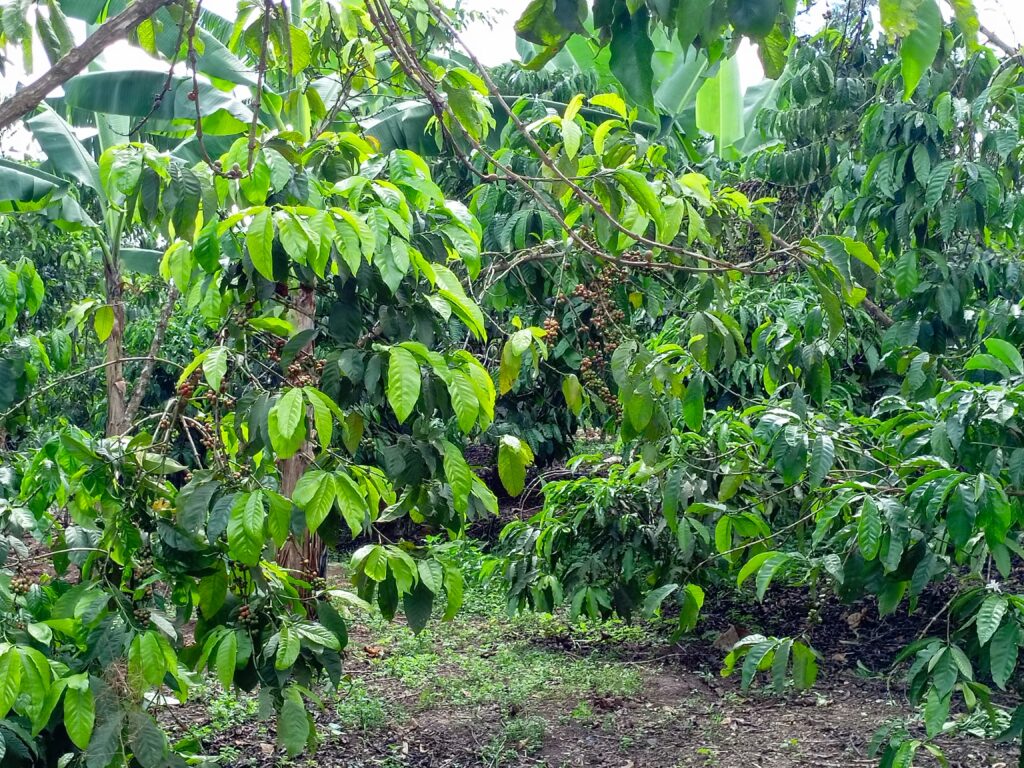
He then plants the rest in his coffee plantation. His farm produces thousands of seedlings annually, making him a cornerstone in Mubende’s coffee-growing community. His customers are individual farmers from all over the region.
According to Nyombi, from a coffee seedling to a grown coffee tree ready for harvesting takes at least two years. “The garden where I harvest coffee now is about eight acres. But in total, my coffee plantation is about 30 acres. I usually harvest between 80 to 100 bags of coffee in a season.”
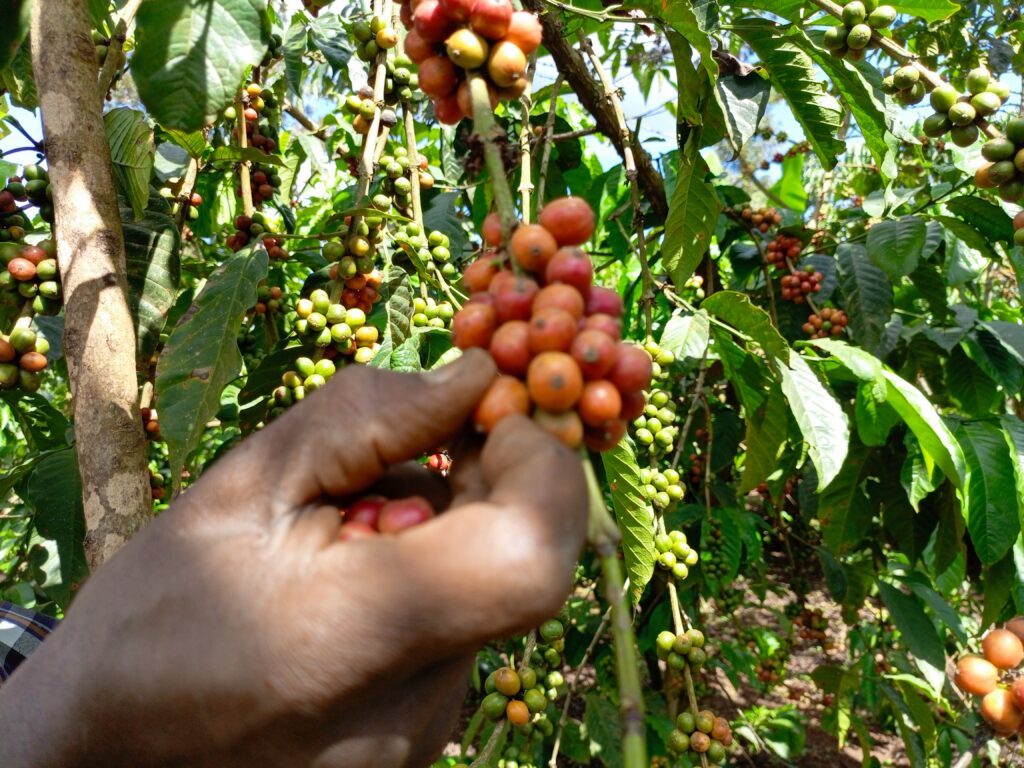
Nyombi sells a kilogram of coffee between Shs7000 to Shs8000 after drying it— Kiboko (dry-processed Arabica coffee).
“A coffee bag of about 100kg is sold at around Shs800,000. When the season does well, I get about Shs100m and about Shs50m in a bad season. Coffee has two seasons.”
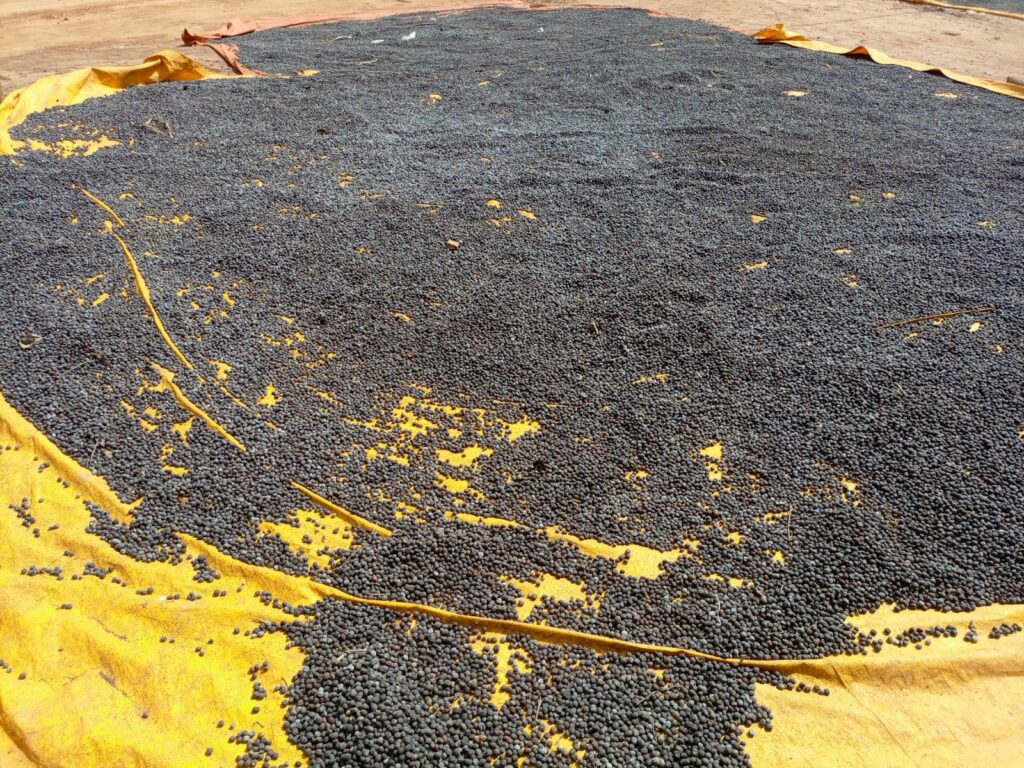
Nyombi’s dual role — as a community leader and a farmer — positions him at the heart of Mubende’s rural transformation. His work is not only feeding families but also inspiring younger farmers across the parish.
He is a member of the Naluwondwa Playground Committee, which is dedicated to restoring a communal playground destroyed during a land eviction that took place in the area back in 2001.

He employs 30 people; six in the nursery, 18 in the coffee plantation and others in harvesting and drying the coffee. He has bought over 100 acres of land in Kijunga and other neighbouring villages. He has an eucalyptus plantation of about 20 acres and a cattle farm with about 18 cows.
When Tenants Fail, Chickens Deliver
In 2024, after several tenants defaulted on rent, Nyombi made a bold pivot — converting his rental units into poultry coops.
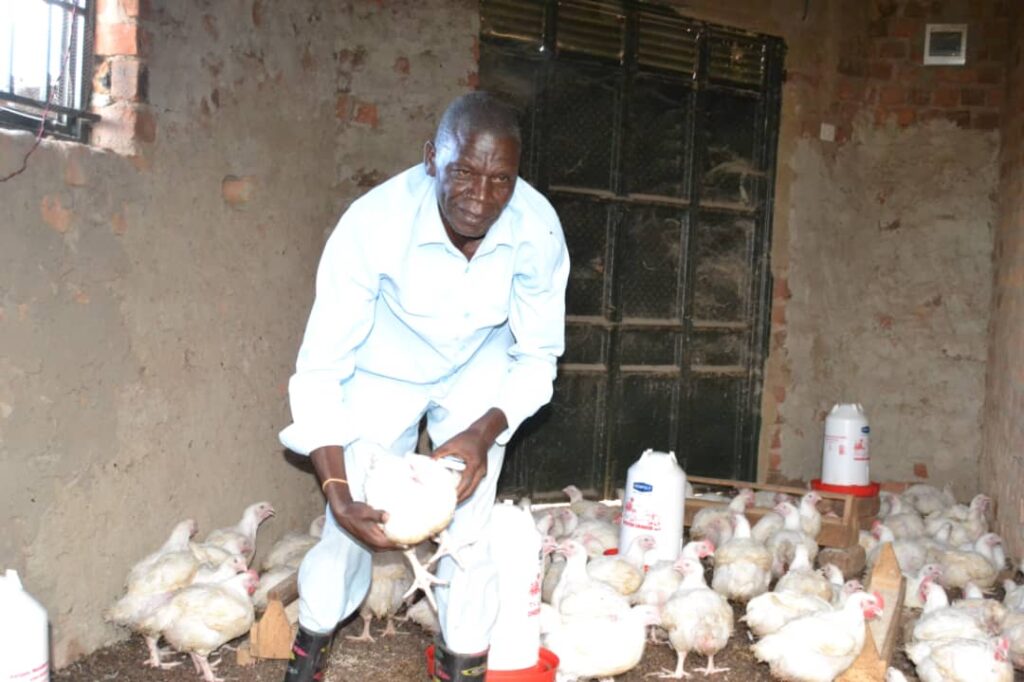
“I realised poultry farming was more profitable than waiting for rent that never came,” he says with a smile. “Now, those rooms are filled with broilers.”
He buys chicks at Shs10,000 to Shs15,000, raises them for one to two months, and sells them at Shs20,000 to Shs25,000. With 500 chickens at a time, he estimates a monthly profit of Shs1.8 million. “It’s quick money — and more reliable than tenants,” he adds.
A Family Affair
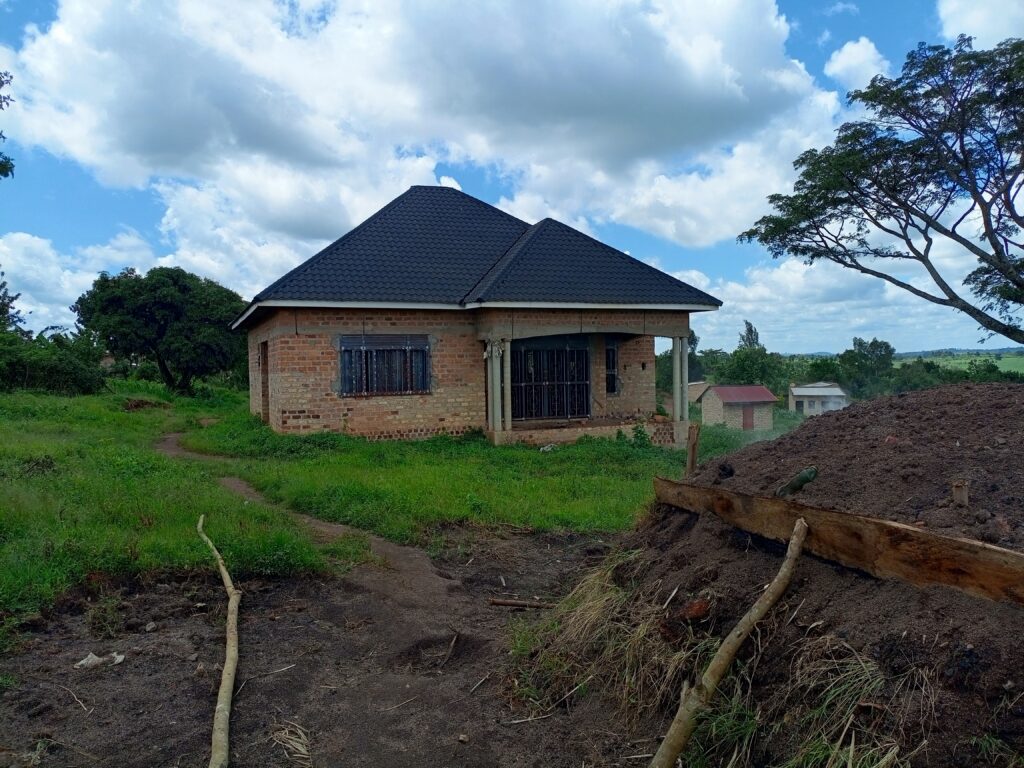
Nyombi’s children actively support the poultry business, especially during school holidays. “They feed the chickens, clean the coops — it’s both training and bonding,” he says. “They also earn their own pocket money and contribute to their school fees.”
His next step? Expanding into “Kuroilers” — chickens known for both meat and egg production. “Eggs will give us a daily income. It’s time to expand,” he notes.
A Leader Who Trains Others
As a leader and seasoned farmer, Nyombi regularly supports fellow farmers through training, mentorship, and donations of free seedlings. He works with agricultural officials from the subcounty to train other farmers.
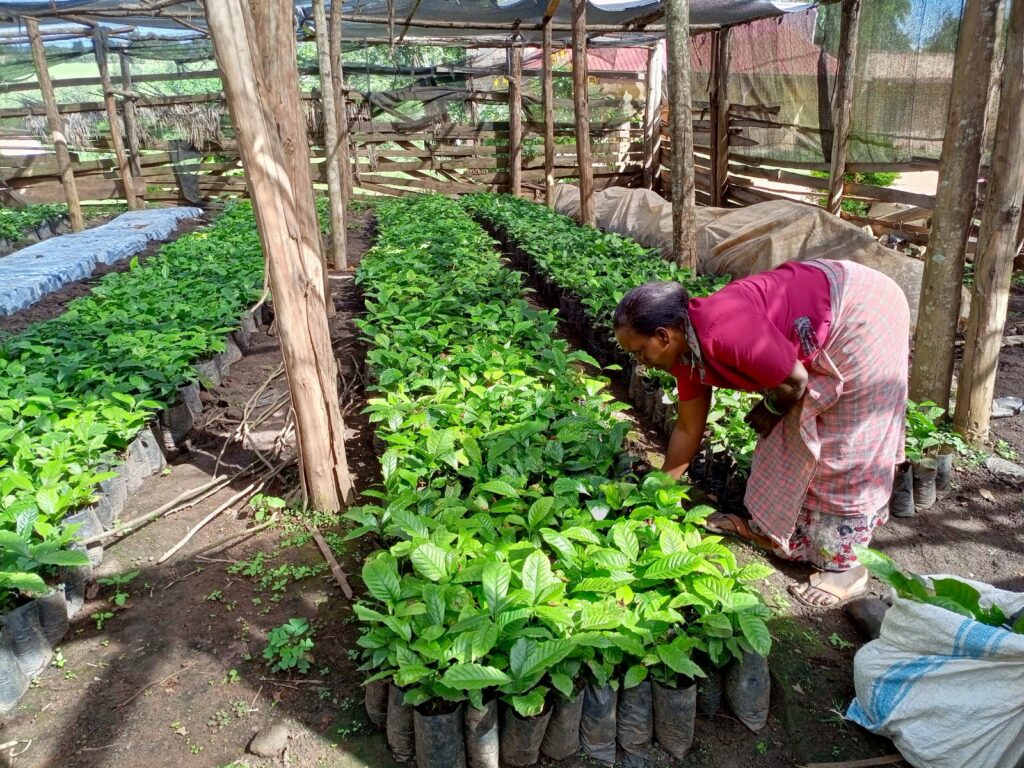
“Many come to me for guidance,” he says. “I help youth and women’s groups understand nursery management and commercial farming.”
He shows other farmers how to use organic fertilisers like cow dung and sometimes combines both organic and modern to achieve maximum results. He believes in diversification and urges farmers not to rely on one crop or income stream.
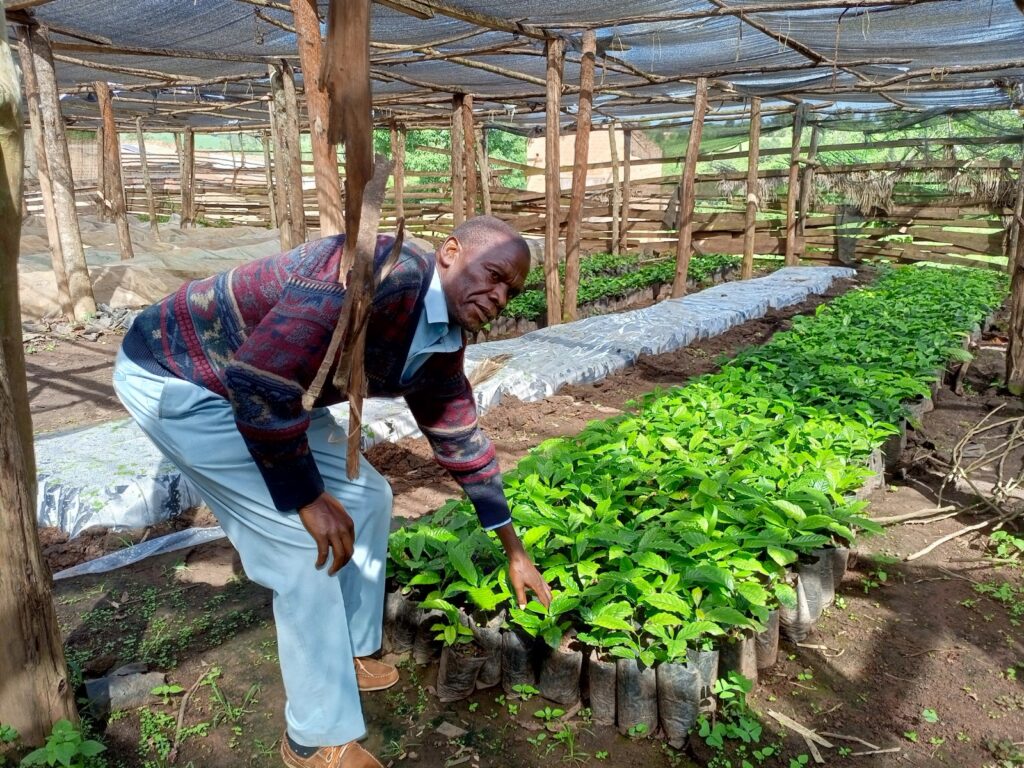
Challenges
The biggest problem is coffee diseases, which destroy coffee trees. “I appeal to the government to train us coffee farmers on dealing with coffee pests as well as how to use pesticides.”
Farmers in the area still face major challenges — from erratic weather to lack of knowledge and access to inputs. Prolonged dry spells can ruin the coffee seeds. “That’s why training is essential,” Nyombi says. “Some people don’t even know how to care for a coffee seedling.”
To solve this problem, Nyombi waters his coffee from his water system. “However, I haven’t reached the capacity of using irrigation. I hope to get there in the future.”
There is also a challenge of market access. Currently, Nyombi sells his coffee to other farmers and traders who then sell to distant markets. He wishes to penetrate even bigger markets outside the region. “I will have to look for large markets so that I can sell more.”
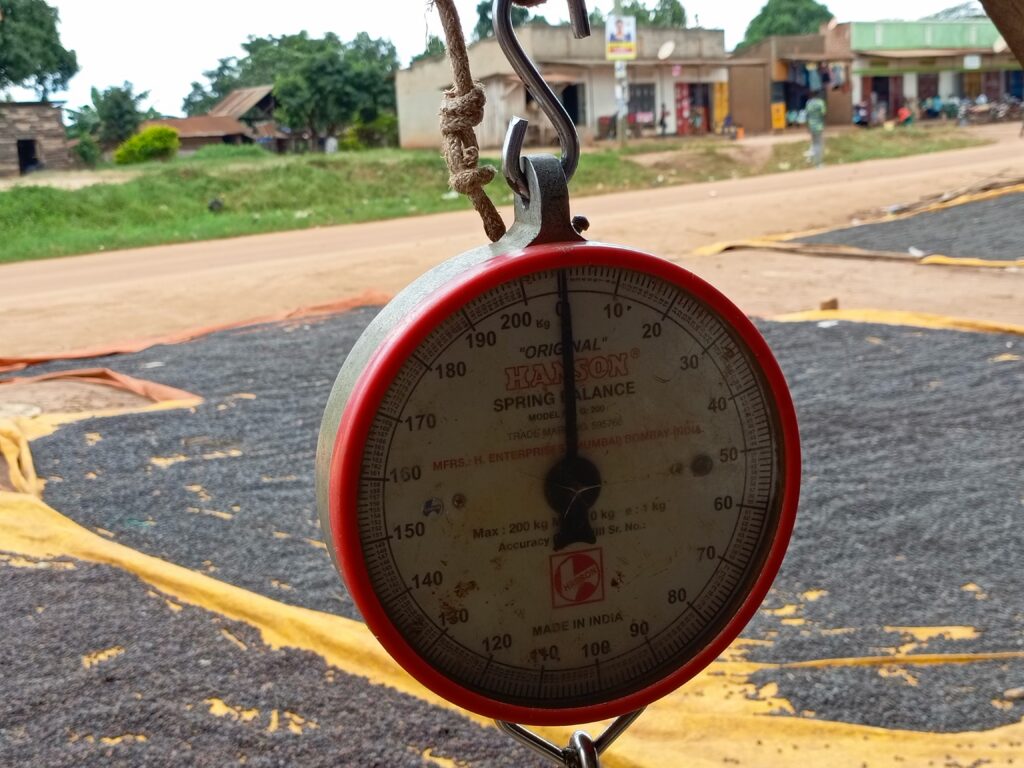
Future Plans: Value Addition
“In the future, with God’s help, I want to start a coffee processing plant. In two years, I should be able to build a plant of about Shs300m. If I’m not able to raise the money, I will have to borrow because now I have the capacity.”
He also hopes to buy a bigger truck to help with coffee transportation to far markets. “That will help me cut transportation costs.” In Madudu, James Nyombi is proof that with the right seeds and mindset, even the smallest beginnings can grow into legacies.
